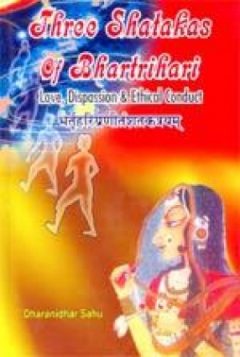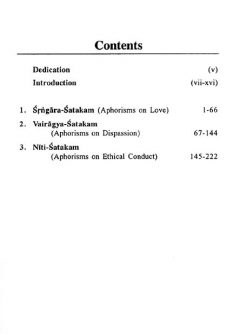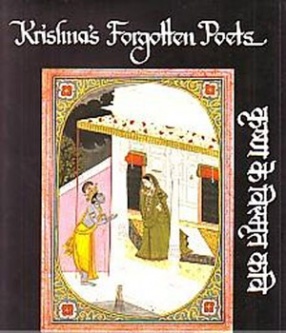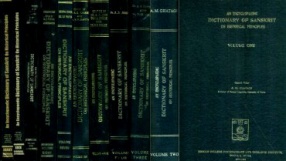The poet Bhartrihari probably flourished in the first century B.C. His Three Shatakas maps the journey of the human mind through different stages of growth and maturity: from the pleasures of erotic love and ecstatic celebration of senses through an indignant rejection of earthly pleasures to an equanimity, a calm attained by the taming of the temptations through meditation and philosophical contemplation on the nature of things. In keeping with Hindu view of life, the ancient poet gives as much importance of love as to dispassion (Vairagya) and ethical conduct (Niti), Vairagya or dispassion is not a state of mind, which only the world-weary people can attain. Even the romantic and worldly people are visited by it when the going gets tough, when they are let down by the people they hold dear. In that sense it is a universal condition of being. One hundred aphorisms on ethical conduct (Niti Shataka) enshrine the quintessence of the Vedantic view of life. Contrary to conservative interpretation, Bhartrihari makes the Law of Karma subservient to the human freewill and individual effort, thereby reinstating the dignity of man. The present translation of the Three Shatakas in English will prove to be very useful as it also contains the Sanskrit Text with English transliteration. It is hoped that readers of all age groups will find something interesting and instructive in this collection of three hundred verses.
Three Satakas of Bhartrhari: Srngara, Vairagya and Niti
In stock
Free & Quick Delivery Worldwide
reviews
Bibliographic information
Title
Three Satakas of Bhartrhari: Srngara, Vairagya and Niti
Author
Edition
1st ed.
Publisher
ISBN
8185504423
Length
xx+222p., Plates; 23cm.
Subjects









There are no reviews yet.